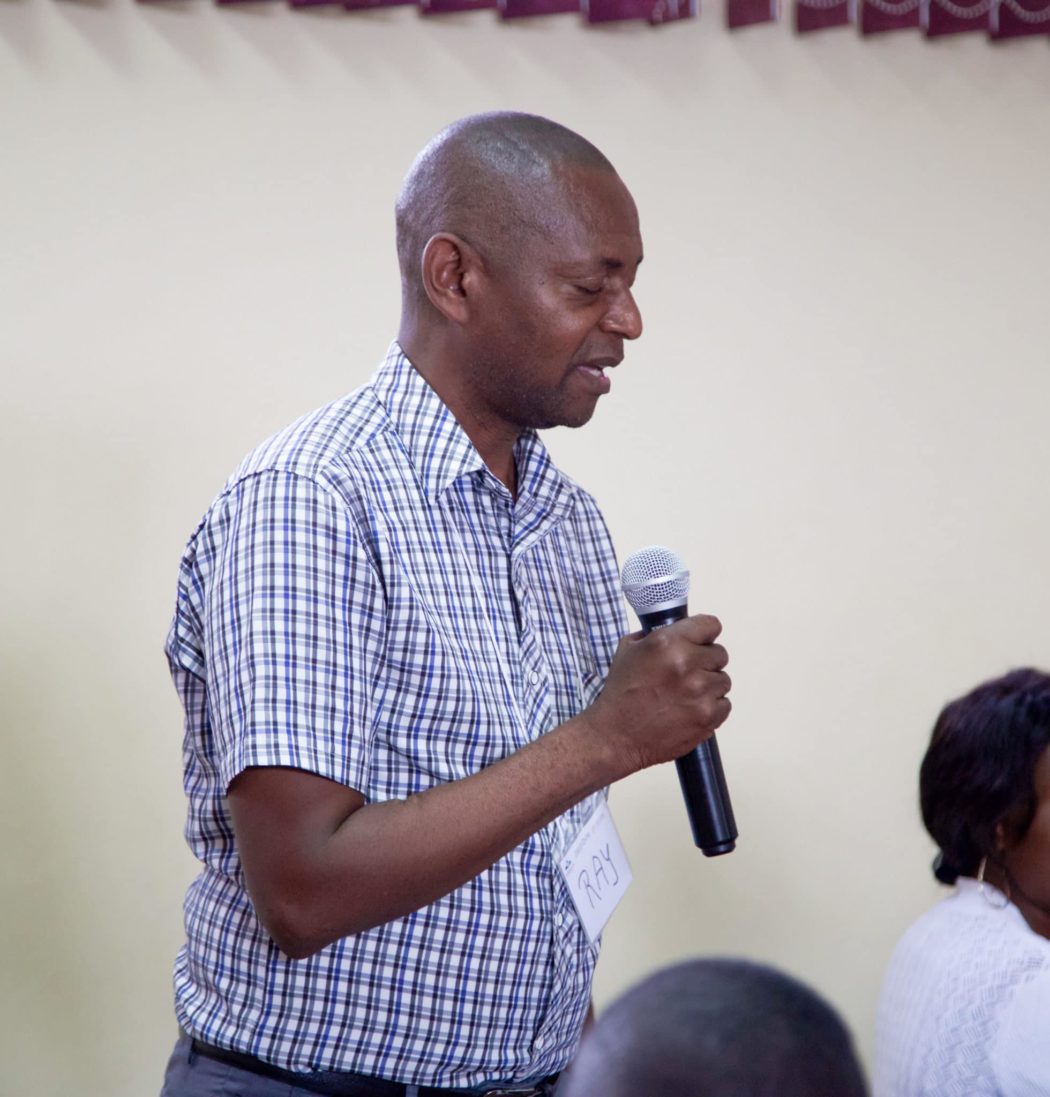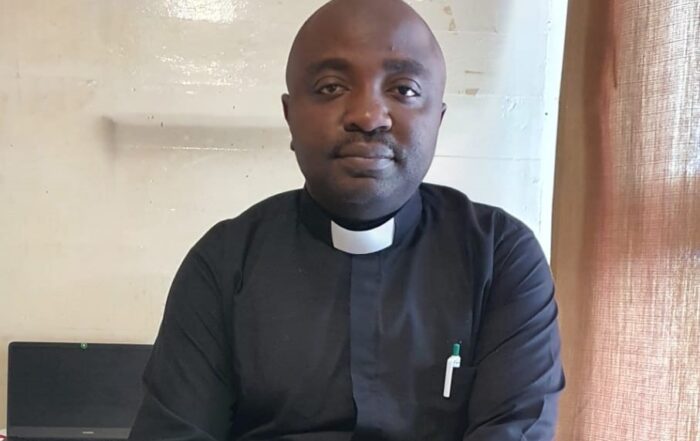Training Ray for Mission
*Ben Watson, this blog’s author, is Professor of Bible and Leadership, and is blind.
His name is Ray Zulu. He lives in Zambia, one of the world’s poorest countries. Ray is a father of three children, a counselor, an advocate for the disabled, a mentor to young people, a pastor, and some even think he is a lawyer. Ray is blind. Until recently, Ray had never had the opportunity to receive formal biblical and theological training, training that would help him be an even better pastor, counselor, mentor and advocate. That all changed when he learned of and enrolled in the training offered by iTEE University, the teaching arm of iTEE Global. At this writing, Ray is a happy, excited and successful student. I’ll return to Ray’s story shortly. First, however, I want you to know about the training offered to Ray and hundreds more pastors and church leaders in countries in Asia, Africa, the Middle East, Latin and North America.
How is Ray’s getting trained?
The iTEE University method of training is Jesus’s method of dialogue, dialogue between the student and God, between the student and the course content, between the student and his professor and between the student and fellow students. Our desire is that each class become a learning community where the student learns from the course content, from his professor and from fellow students. This is achieved through what we call life notebook questions where the student dialogues with God, through course content questions where the student dialogues with the information contained in the course and discussion questions, where the student dialogues with both his professor and with fellow students to apply the course content to his/her life and ministry.
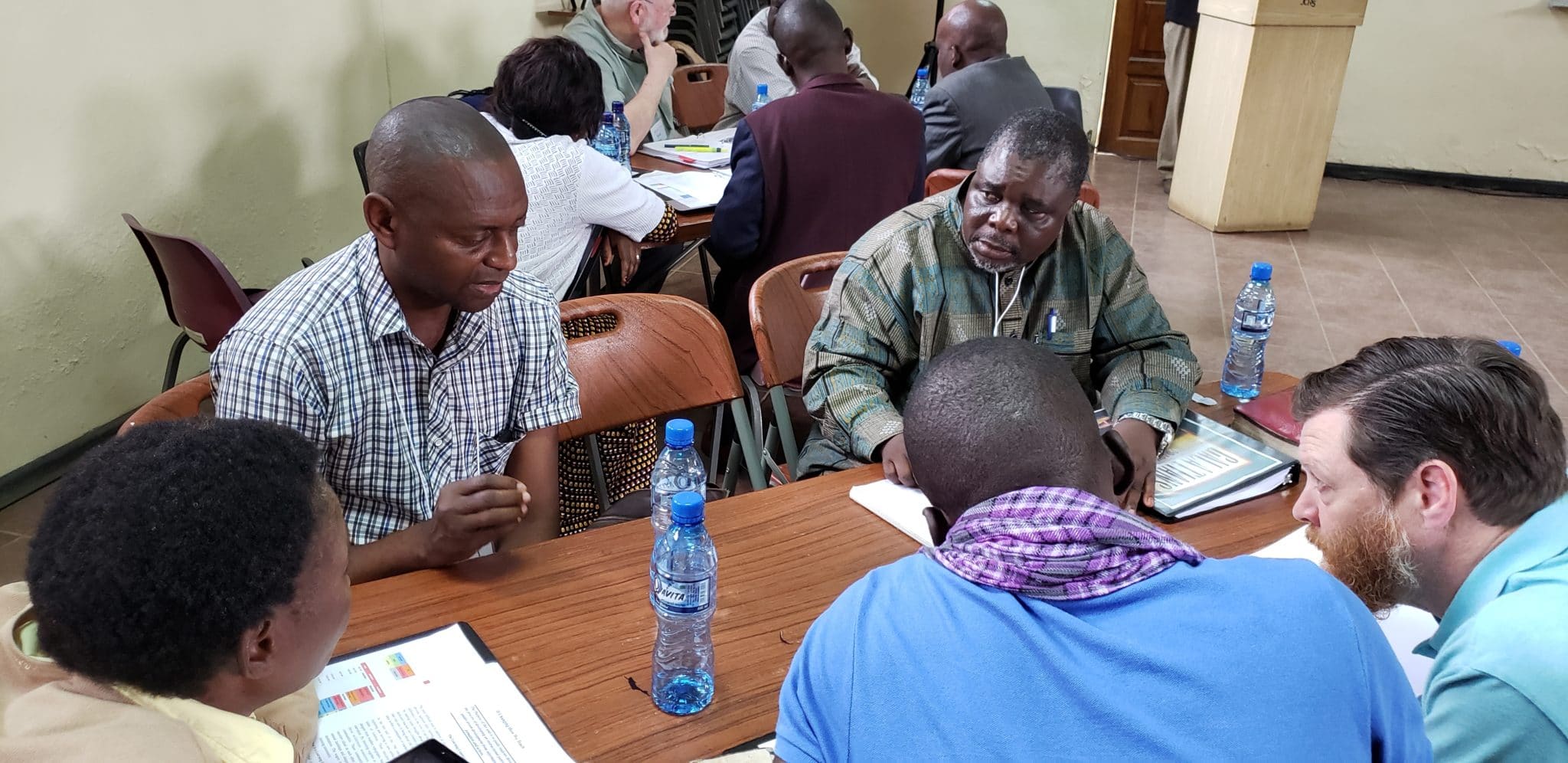
iTEE University’s goal for each of its students is twofold, transformation and multiplication. At the end of each course, students must demonstrate how they have been changed in three areas, head, heart and hands.
- Head (mind) transformation begins when unbiblical information and viewpoints are replaced with biblical truth.
- Heart (feelings) transformation continues when unbiblical ways of feeling are replaced with biblical ways of feeling.
- Hands (our activities of service) are transformed when our heads and our hearts become active in practical service for our Lord Jesus by serving His people.
How can we multiply disciples?
Before He ascended into heaven, Jesus commissioned his disciples to make clearly:
“All authority in heaven and on earth has been given to me. Therefore go and make disciples of all nations, baptizing them in the name of the Father and of the Son and of the Holy Spirit, and teaching them to obey everything I have commanded you. And surely I am with you always, to the very end of the age.”
Matthew 28:18-20
Since the beginning of time, God has wanted His people to multiply. We see this physically in verses like Genesis 1:22, 28, 8:17, 9:1, 16:10, 17:20, 22:17 and 35:11. In the New Testament Jesus extended this multiplication in a spiritual direction. Matthew 28:19, 2 Timothy 2:2.
The vision of iTEE University is to make disciples who will multiply disciple-makers. Therefore, we don’t want our students to learn and then keep it to themselves. Instead, we want them to teach others, who will teach still others, who will teach still others so that there is an ever-widening circle of disciples who are continually making new disciples whose lives are being transformed and who in turn continue to make more disciples, who in turn make more disciples.
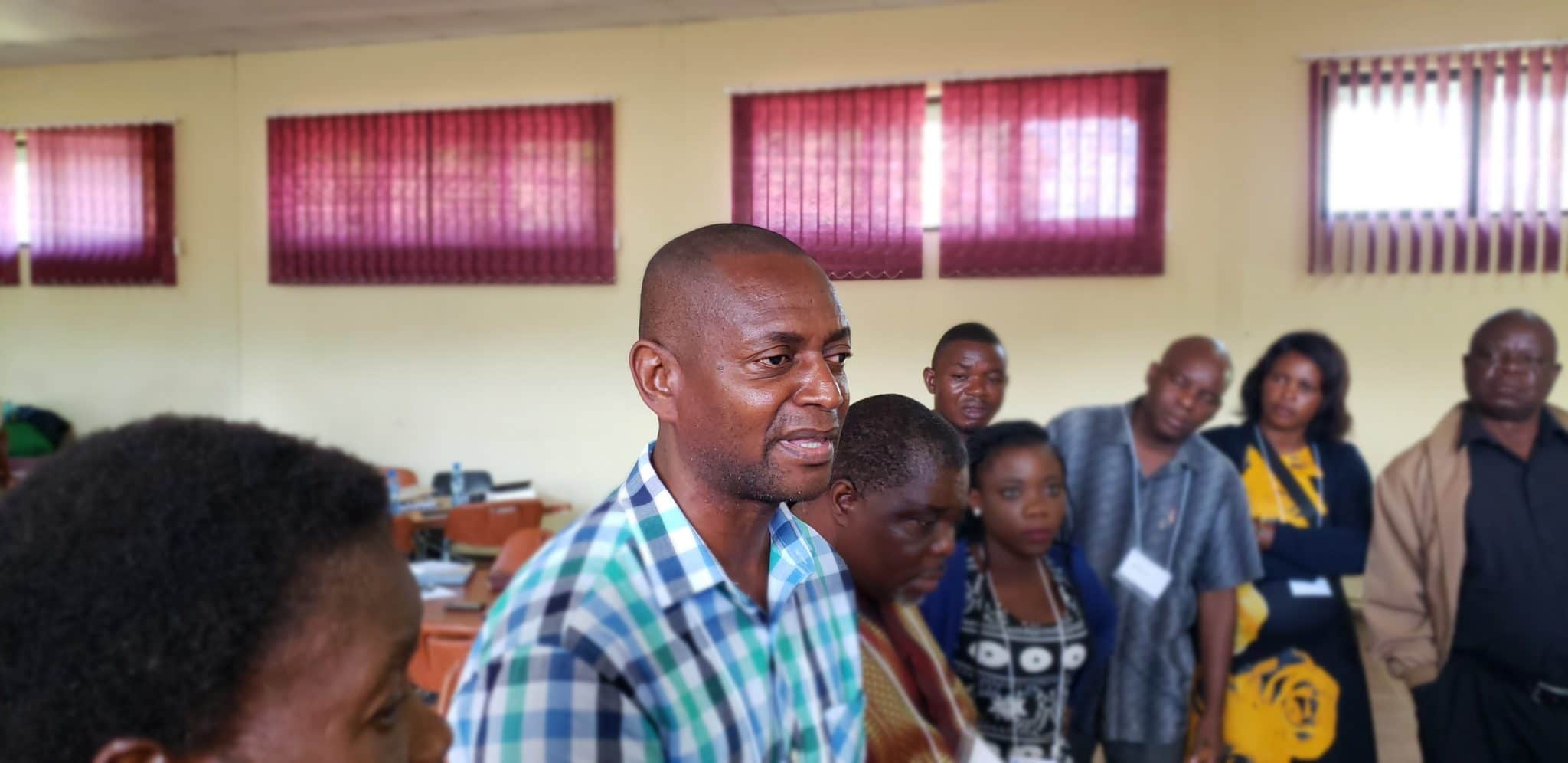
I said above that Ray is blind and a pastor living in Zambia, one of the world’s poorest countries. How is Ray able to successfully read his course material, interact with God, his professor and fellow students? Ray combines older and modern technology to study his courses, interact with God through life notebook questions and with his professor and fellow students through discussion questions.
Older Technology
The old technology Ray uses is braille, a system of reading and writing invented by Louis Braille, (1809-1859) a blind student in a school for the blind in Paris. Through braille, Ray is able to read his bible, prepare sermons and, as a part of his studies look up Scripture mentioned in the course lessons.
Modern Technology
The modern technology Ray uses to advance his understanding of Scripture is his Android smartphone. His Android smartphone enables him to access the internet which, in turn enables him to access the Moodle mobile app, which allows him to fully participate with his professor and fellow students in studying the courses.
Accessing the Courses as a Blind Person
How does Ray access all of this visual material since he is blind? His Android phone has a screen reader built into the operating system. This screen reader audibly reads text on the screen and any graphics that have been coded with alternative text. When Ray types on his keyboard, the screen reader speaks each word or character typed in an edit field. In this way, Ray is able to hear what he is typing and is able to make corrections where necessary.
There is one drawback to reading with a screen reader, however. . Screen readers often don’t read in as precise a way as a human reader does. For example, it is sometimes hard for a screen reader to detect pauses like the end of a sentence or the end of a paragraph. Fortunately, screen readers have made great strides in becoming more human-sounding, both in recognizing natural endings and in word pronunciation but sometimes extra help is needed. This is where Ray’s professor Jeromy Pucket entered the picture. Because his screen reader tended to run everything together, Jeromy recorded the lesson material, thus enabling Ray to receive more from his studies
Personal Growth
Recently, Ray completed his study of Galatians and is now studying a course entitled “Worshiping God in the Psalms.” How did the study of Galatians change Ray’s life? Ray wrote the following.

“I’ve come to understand about Grace, and the works of the Law. I’ve come to understand how people easily slide and move away from the truth…What has changed for me is that my depth of understanding of Grace and the works of the Law has been deepened. My attitude has changed because of understanding that it is by grace and grace alone, by faith and faith alone in Jesus Christ. Nothing else. Nothing more. Nothing less. It is all about Christ. Even my approach to preaching has changed. I am now always emphasizing the fact that it is it nothing else but faith in Christ Jesus…Interacting with people, apart from just preaching from the pulpit, my studies has helped me so much to understand that wherever I find myself…God has put me in such a situation for a purpose, and that purpose is to speak about the Love of God.”
What can we learn from Ray’s story? It teaches us that when given the opportunity, tools and strategic help a disabled person can train for ministry, and with the available technology a disabled person can train for ministry from anywhere in the world, even one of the world’s poorest countries. Ray says that the method of online studies levels the playing field and can go a long way toward removing the stigma of people with disabilities being involved in ministry.
If you believe God is calling you into ministry or if you know a disabled person who evidences gifting and aptitude for ministry, I invite you to explore the training opportunities available through iTEE University.
Written By—Ben Watson
Ben currently serves as an online and in-person professor of Bible and leadership with iTEE University. The goal of iTEE University is to make disciples who will multiply disciple-makers.
Edited by David C. Deuel & Nathan G. John
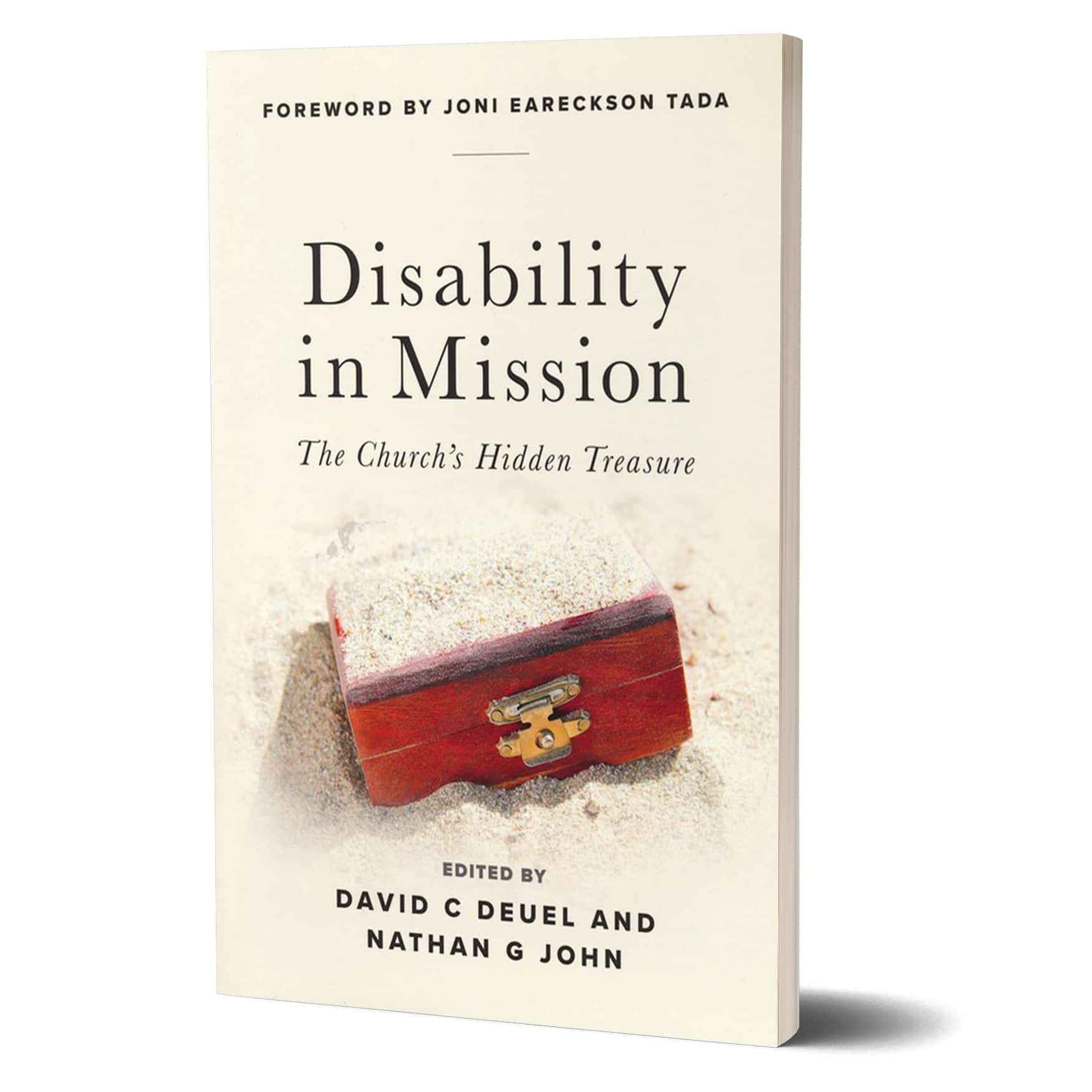
Disability in Mission
Disability in Mission: The Church’s Hidden Treasure outlines a radical change in approaches to missiology, missions, and praxis for the twenty-first-century global cultural context. It explores a pattern whereby God works powerfully in missions through disability and not in spite of it.

